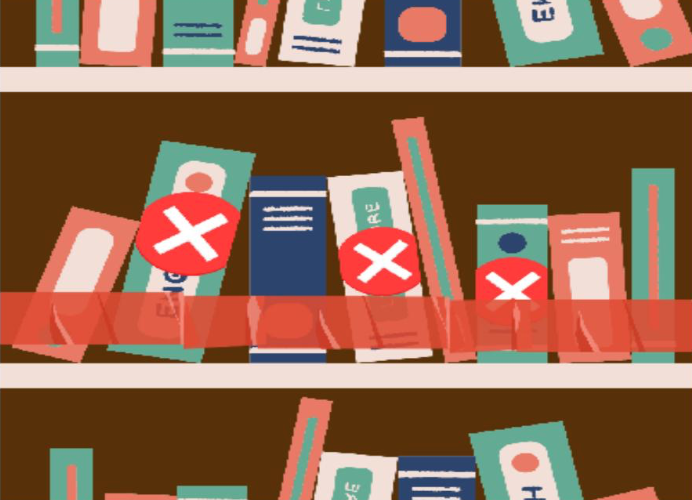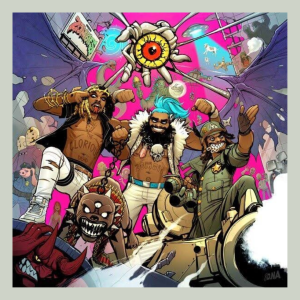Book Bans in the Education System
A protection of innocence or an abuse of control?
February 28, 2023
In public education systems, the term “book banning” is used when a certain piece of literature is prohibited from being taught in schools, included on reading lists or being housed in libraries. The reason for a book ban can vary. A book can be banned for being considered sexually explicit, offensive in language, inappropriate for underage individuals, violent or holding a certain religious viewpoint that is deemed unsuitable. Other times, a ban can be in place due to references to elements like witchcraft or themes of death.
While in some circumstances, a book ban is rightly in place, there are times when this system is taken advantage of by those with a more manipulative intent. In recent years, this method has been used as a scapegoat to ban books that touch on topics like racism or identity. Often, those trying to ban these books argue that it has nothing to do with the covering of these issues but instead that they do not want their children to be exposed to sexual content. This excuse is flimsy in nature, given that the targeting of books containing references to the LGBTQ+ community is clear as day. While the concern of children being exposed to sexual content is valid, it is the insinuation that any content relating to the LGBTQ+ community is inherently sexual that is the problem.
It is important to protect and preserve a child’s innocence, but this is not the same as shielding them from becoming educated on the real societal issues this country faces. Banning books that shed light on the harsh truths and realities of this country will prevent youths from being able to grow and learn from their behaviors and understand why certain actions may be harmful to others.
A commonly known banned book in the United States is Alice Walker’s “The Color Purple.” Written in 1982, Walker’s book portrays the life story of a young African American girl named Celie growing up in Georgia during the early 1900s. The book does not shy away from harsh truths, and throughout the story, Celie encounters racism, sexism, abuse and questions of her sexuality. When banned from school systems, the primary reasons were the book’s references to homosexuality, violence and explicit language.
It is situations such as this one where the faulty morality behind book banning becomes transparent. It should be criminal for the education systems to try and shelter young people from being able to learn and understand the tragic reality of their country’s foundations. By keeping them from having access to this curriculum, it is denying the experience of the afflicted and a sad attempt at not taking accountability. It is teaching the young people of today that by ignoring and denying the experiences of others, you can get away with harmful and problematic behaviors. While yes, these topics can be difficult, horrifying and sad to read about, they are also real and deserve to be voiced. The youth of today should not be sheltered from learning the truth about their country and its foundations. They should also not be kept from reading about the experiences of others and identity.
Trying to keep young people from this information is a cowardly act that should not continue. Although it can be a difficult truth to face, this country did not begin on righteous foundations, and it is dangerous to keep the youth of today from truly understanding this. This is not to say that there are no books that are not deserving of a book ban in education systems. It is simple to draw attention to the idea that maybe this list and its intentions need to be reevaluated.




